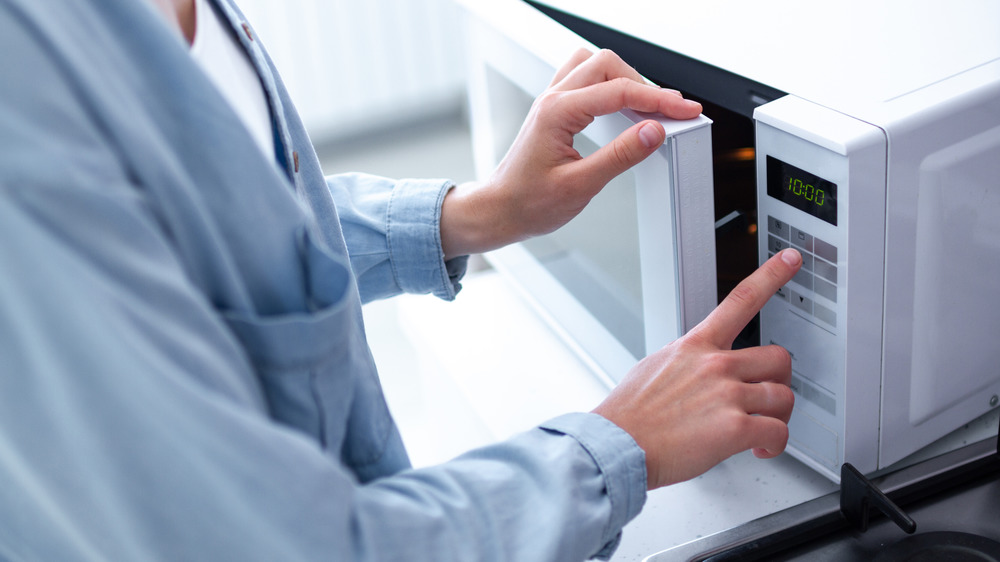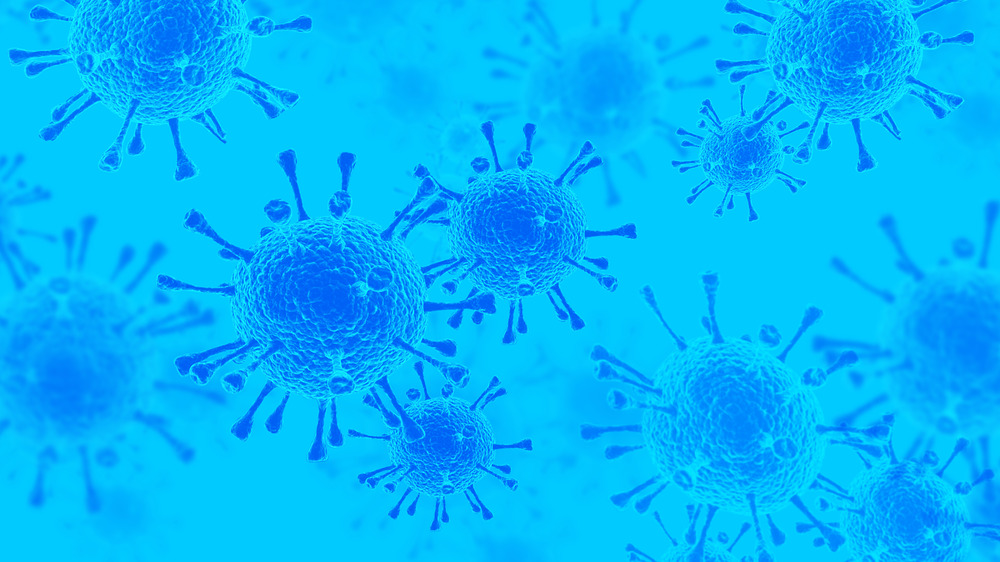Can Your Microwave Really Kill COVID-19?
As COVID-19 continues to wreak havoc across the globe, scientists are learning more about the nature of the virus and how to contain it. One of the many unknowns when COVID-19 first appeared was whether it could be spread by touching surfaces or eating contaminated food, which led to many people wondering whether they could prevent infection by simply microwaving objects or food. Over a year into the pandemic, the jury is still out on whether microwaving is a safe way to keep COVID-19 at bay.
While there are established temperatures that different foods must be cooked at, there is no single temperature that will kill all bacteria and viruses. However, most bacteria and viruses will be killed within one to five minutes, depending on the organism and strength of the microwave (via CDC). Researchers found that heating a virus-containing object at 160 degrees F for three minutes was effective in killing the virus. At a temperature of 140 degrees F, and object needed to be heated for 20 minutes before the virus was killed (via Reviews in Medical Virology).
Here's what scientists recommend
Microwave ovens work to heat objects by using microwave radiation that is first absorbed by the water in an object and then makes the water molecules vibrate. If you are microwaving food, the vibrating water molecules produce heat which cooks the food (via FDA). There isn't one single temperature setting for all microwaves since they cook at different strengths depending on wattage (via Healthline).
Even though researchers have successfully killed SARS-CoV-2 using heat, there isn't enough data to say whether or not microwaving an infected object will completely eliminate the coronavirus. Since microwaves vary in power and often heat things unevenly, it is not recommended that you microwave objects, such as masks, to disinfect them. And because the risk of contracting COVID-19 from food is extremely low, microwaving isn't a necessary preventative step. Scientists continue to recommend masking, social distancing, and hand washing as the best ways to avoid contracting COVID-19.


